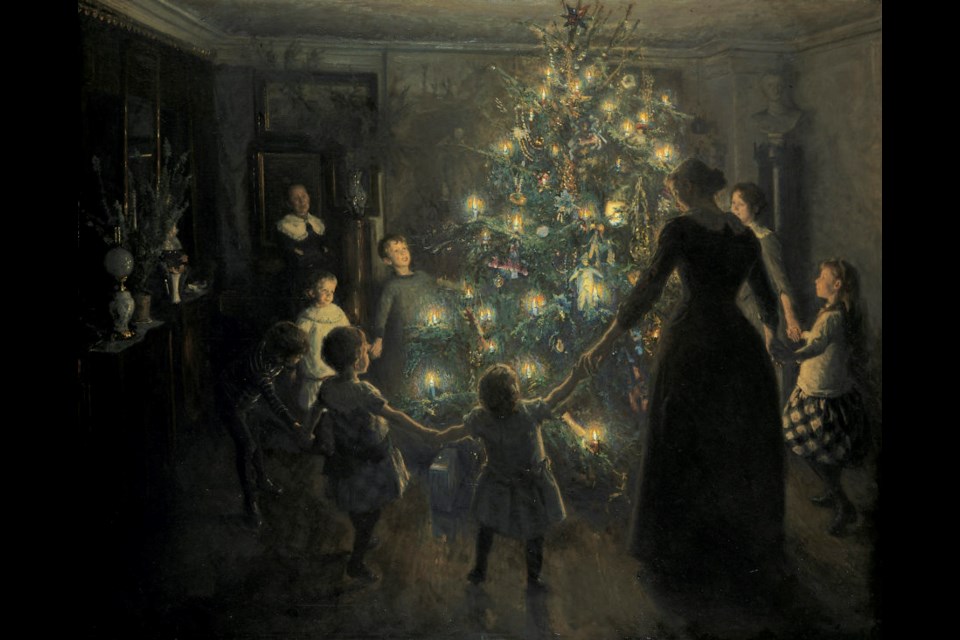MOOSEJAWTODAY.COM — The practice of setting up a Christmas tree is one hallmark of the holiday season, and has a history deeply rooted in tradition.
The first recorded use of coniferous trees to decorate the home began around 400 years ago in Germany. The tradition worked its way outside the country and soon spread across Europe. In 1781, a German immigrant is said to have brought the tradition to Sorel, Quebec, and thereby all North America.
In the early days, trees would be cut down in a nearby forest. This practice has been mostly abandoned, with 98 per cent of Christmas trees produced in Canada being farm-grown, according to Statistics Canada. The source also stated that, in 2021 figures, there were 1,364 tree producers across 50,803 acres of tree farms in Canada. The largest producer is Ontario, followed by B.C.
Most Christmas tree farms usually begin the work by sowing seeds in a specialized greenhouse. From sowing, it takes around two or three years before the seedling reaches 30 to 40 centimetres in height and can be transplanted outdoors.
Two of the most common tree species used for the assignment are Fraser and Balsam Fir. Fraser Fir trees are denoted by a slightly bluish hue and have sturdy branches. Balsam Fir trees come with a stronger natural scent.
To find and purchase a living Christmas tree, a few tree farms exist close to Moose Jaw. Gilmour Tree Farm is located west of Regina near Lumsden and can be reached at 306-539-2364. McKay Tree Farm is located near Lawson, Sask., features pre-cut trees, and can be reached at [email protected].
The Rotary Club also sells pre-cut Christmas trees in .
As the trees continue to grow, producers must take measures to control pests that appear in the late spring and summer months. Trees need to be pruned after the first buds start to open, and leading shoots at the top are typically trained to grow straight in order to one day hold a star or other topping ornament.
It takes between 10 and 14 years to develop a fully mature Christmas tree.
In or around mid-November, mature trees are harvested and prepared for shipment. On farms where visitors cut down their own trees, a saw and sled are provided, and guests can select the tree they like best. The adventure makes an ideal family activity during the holidays.
In recent years, the trend in living Christmas tree harvesting has been on the decline. This is due to several factors which include a diminishing number of tree farms and climate change concerns such as drought and reduced winter snowfall.
For those who continue the tradition of cutting down a Christmas tree, one important tip is to make sure the tree receives a constant supply of water. This can be achieved by placing the tree in a tree stand designed for the purpose. It’s advisable to cut around a centimetre or two at the base of the tree to remove the sap plug that prevents water absorption.
Many residents prefer an artificial tree that lasts for years, and there’s a new trend for pot-grown Christmas trees that can be brought indoors and then later planted outside, rather than being cut down.
After the Christmas holidays, your living Christmas tree can be placed outside next to your City of Moose Jaw garbage bins for later collection by city crews.
In response to some providers blocking access to Canadian news on their platforms, our website, MooseJawToday.com will continue to be your source for hyper-local Moose Jaw news. Bookmark and to read the latest local developments.




